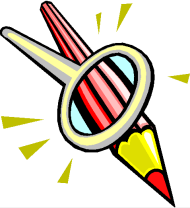The Challenge of Spell Checkers
Published by Peter B. Giblett,

We have come accustomed to it when we write, the red squiggly line that says you had one of those mental moments and spelt it wrong, it is just like the teacher back in school days getting her red pencil out to highlight your errors.
Yet one further limitation of spell checking is when you misspell something, yet the error is actually still a correctly spelt word, like using "net" when you intended to use "not", the problem with this type of error is that they are almost impossible to spot because your mind will almost always trick you into thinking that the right word is being used on the page. Believe it or not this is where temporary blindness has assisted me because those dark days caused me to install software that reads text to me and today it is rare for me not to post without having the item read back to me as a part of my quality control routine, which most often finds these errors.
Some problems with spell checkers include:
- Not good with place names, has some knowledge of American places, but others are often problematic
- Works poorly with proper names
- Technical terms have to be added to a custom dictionary
- Does not find misused, but correctly spelt, words
- Does not detect the improper use of homonyms
- Flags words as an error yet they are correct (and the replacement provides an identical spelling)
- It doesn't offer useful suggestions

About the Author
Peter Giblett has spent the majority of his life in business, he has been writing on-line since 2008, has produced web content for many web sites, is a writer and moderator for Wikinut, and writes occasional guest pages on 2 Drops of Ink. Sticks and Stones is intended to be a new source of inspiration for those looking to improve their English.
Image Credits
Image Credits
- Red Pencil By Green Street - Royalty free images owned by the author.
- Forest Light by Peter Giblett.